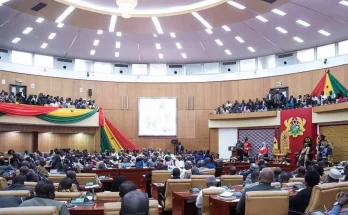- Digital Assets Now Within Scope of Nigeria’s Tax Laws
Nigeria Expands Tax Net to Cover Virtual Currencies Under New Fiscal Reform. Nigeria’s new tax reform framework will officially recognise and tax virtual currencies , including cryptocurrencies, as part of the country’s modernised fiscal architecture.
This was disclosed by the Chairman of the Presidential Fiscal Policy and Tax Reforms Committee, Mr. Taiwo Oyedele, during a virtual public lecture hosted by the Capital Market Academics of Nigeria (CMAN) on Wednesday.
Virtual currencies, he explained, include digital assets created and traded electronically, many of which operate outside traditional regulatory systems. These range from closed-platform tokens to fully convertible cryptocurrencies that can be exchanged for fiat money.
Capital Market Gains Remain Exempt – Government Seeks Youth Participation
Despite expanding the tax net to cover digital assets, Oyedele emphasised that capital market gains have been intentionally exempted under the new law.
He described this exemption as a deliberate incentive to encourage young Nigerians to embrace regulated investment platforms instead of focusing exclusively on volatile virtual currencies.
“Virtual currency under the new law is taxable. But gains from the capital market are exempt for virtually everyone,” Oyedele explained.
“We should be telling young people that regulated markets offer better returns — and they are tax-free.”
He cautioned that misinformation circulating on social media has discouraged many first-time investors, adding that false tax rumours have contributed to retail panic, mispricing, and unnecessary market volatility.
See: South Africa to Enforce Mandatory Income Tax Numbers for All Employees from 2026, SARS Warns
Addressing Misinformation and Market Distortions
Oyedele noted that the market has suffered from short-term distortions driven by inaccurate narratives, stressing that investors often make poor decisions when misinformed.
According to him, although the capital market tends to correct itself over time, “some people may have lost their livelihoods before that correction happens.”
The committee, he said, has prioritised accurate public education as part of its overall tax reform agenda.
New Law Introduces Dedicated Tax Refund Funds
A significant feature of the new tax regime is the statutory requirement for government to ring-fence funds for tax refunds.
Oyedele explained that under previous arrangements, refund claims were delayed or left unpaid due to revenue-sharing practices that left tax authorities without sufficient liquidity.
“Under the new law, the government will not be allowed to distribute all revenue. Refunds must be set aside and honoured,” he said.
This measure, he added, is expected to improve taxpayer confidence and strengthen voluntary compliance.
Committee Moves to Improve Public Awareness Nationwide
To ensure citizens clearly understand the reforms, the committee is partnering with the National Orientation Agency (NOA) to translate key provisions of the law into major Nigerian languages.
The aim is to simplify concepts such as virtual currency taxation, capital gains exemptions, withholding tax rules, and income declaration obligations.
Oyedele said the outreach campaign will particularly target grassroots communities, informal workers, and digital earners who may be unaware of their obligations under the new regime.
Background: Nigeria Expands Access to Global Tax Data
The remarks also align with earlier disclosures that Nigeria has signed information-exchange agreements with more than 100 countries through the Common Reporting Standard (CRS).
These agreements allow tax authorities to obtain financial data on Nigerians earning income abroad — including remote workers, digital freelancers, and individuals holding offshore bank accounts and property.
Oyedele stressed that taxpayers are required to self-declare income regardless of where they earn it, warning that the government will rely on international data-sharing tools to enforce compliance.




